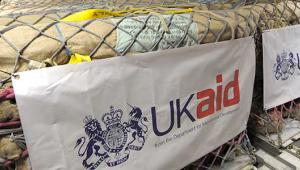In an overview of the country’s economy, the Fund indicated that the labour market has continued to improve, with strong job creation reducing the number of those out of work.
However, growth is expected to remain moderate, indicate economists, and France continues to face risks including a “disorderly Brexit” as its neighbour, Britain, struggles to agree on the terms of its withdrawal from the European Union.
In an ‘Article 4’ mission to take stock of France’s economic performance, the IMF pointed to strong job creation under President Emmanuel Macron.
Macron made reducing the chronic high unemployment that France has endured for decades a key priority after taking office in May 2017 – when it was 9.4% – and has pledged to cut the rate to 7% by the end of his term in 2022.
The pro-business centrist president redoubled his efforts to reform the labour market in January after months of protests by the ‘gilets jaunes’ or yellow vests that increased pressure on him to improve living standards.
In May it was reported by the national statistics agency, INSEE, that French unemployment had fallen to its lowest level in 10 years – 8.7% of the labour force – suggesting that Macron’s reforms are bearing fruit.
The IMF welcomed the reforms to foster labour market participation – including revamping vocational training and professional development, and overhauling unemployment benefits.
The Washington-based fund said that after slowing last year overall French growth is expected to stay moderate in the near term, reaching 1.3% this year and 1.4% in 2020.
Inflation spiked in 2018 because of rising oil prices and tax hikes but has since moderated and is projected to reach 1.2% this year.
The fiscal deficit declined to 2.5% of GDP by the end of 2018, while public debt continued to remain elevated, at around 98% of GDP.
The IMF says that in the medium-term, the growth of France’s economy is expected to converge gradually toward its long-run potential of about 1.5%.
However, risks have risen, and the IMF points to fears about a disorderly Brexit as well as trade tensions, softening activity in the euro area, and a slowdown in Macron’s reform agenda.














